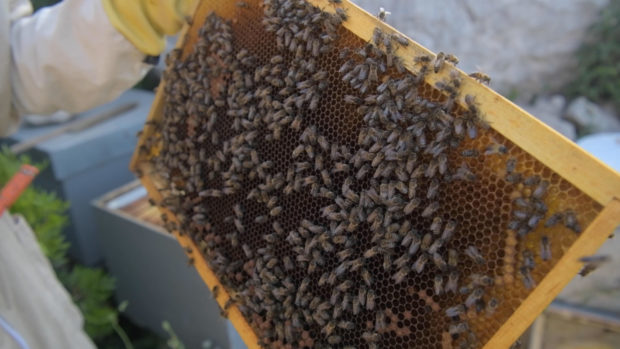
Image: Energy Observer Solutions
True indicators of the state of biodiversity, everywhere in the world, bees are victims of neonicotinoids and other deadly agricultural practices.
On the island of Malta, the BeeAware program is raising awareness of the population’s need to defend bees by providing beekeeping courses. It is a crucial campaign at a time when bees are under threat on a planetary scale.
A third of the world’s food depends on pollination
Having inhabited the planet for over 50 million years and benefiting the pollination of plants and hence their reproduction, bees are essential to the survival of mankind. Today though, their existence is under threat.
Forty percent of bee colonies have been decimated across Europe in the past 10 years. In the United States, the death rate is 30% higher each year, and the species’ replenishment can no longer be guaranteed. The cause is intensive farming and the use of pesticides and neonicotinoids in particular.
On the island of Malta, apiculture has been around since ancient times, but today it is under threat. With her Friends of the Earth Malta association, Michelle Galea has founded the BeeAware program there. It is raising awareness among the local population about the plight of the bee by educating them about their preservation.
The association is organizing training sessions in sustainable apiculture. In this way, the island’s young citizens are familiarizing themselves with these insects, deciphering their behavior, getting to grips with how they operate and above all learning about their fundamental impact on cultivation.
Through this teaching program, Michelle Galea hopes to see a collective realization that mankind is not alone on the planet. It is part of and contributes to a complex ecosystem. JB
RELATED STORIES:
A cyclist is responsible for 84% less CO2 than any other road user
Instead of polluting the oceans, a face mask claims it turns into flowers